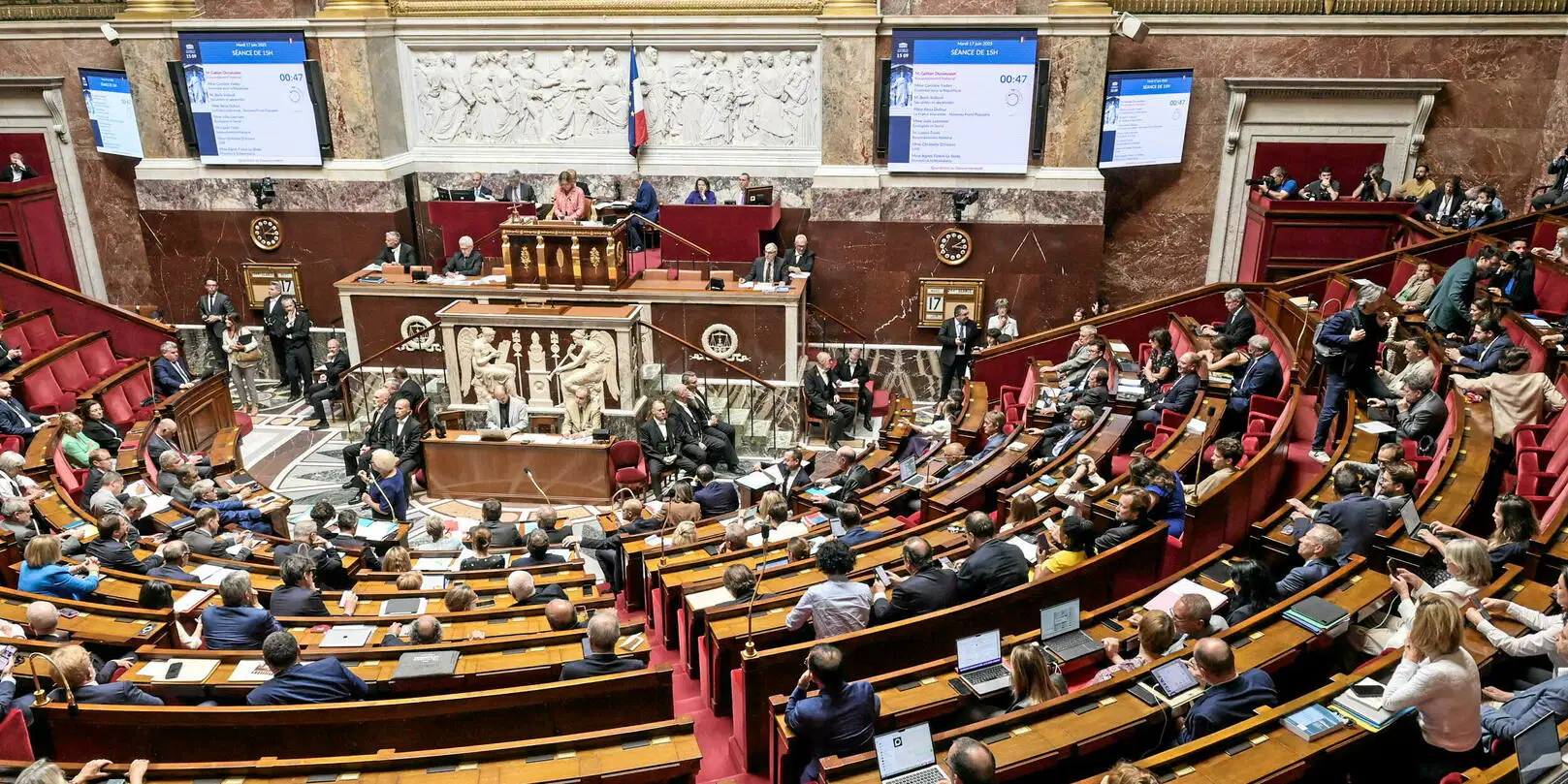
Discreet theorist of political recomposition, political scientist Pierre Martin sees his thesis of the three blocks validated by the current crisis in the National Assembly.
This is a 326 pages rehearsal, published in 2018, which continues to shed light on our political moment. In global crisis and party systems, Pierre Martin, a political scientist at the Sciences laboratory of Sciences Po Grenoble, has established a link between the multiplication of divisions and the transformation of the party field.
Its thesis, summarized in general lines: Western representative democracies are experiencing political tripolarization, articulated around three poles-a democratic-ecosocialist pole, a liberal-globalizing pole and a conservative-identity pole. In reaction to economic and cultural globalization that began in the 1970s and, later, the 2008 crisis, new divisions are emerging: identity versus cosmopolitas, alterglobalizers versus liberal. These fractures are fraying the old bipolarization and reorienting political systems. The author thus diagnoses a weakening of the main rulers and a volatility of the electorate.
This work was well received in academic circles, despite some reserves regarding analyzes sometimes considered too generic. “Pierre Martin’s conclusions are relevant,” constitutionalist Benjamin Morel told Le Point. At Sciences PO, in comparative politics classes, his work is studied and dissected. It is presented as the oracle of major political transformations.
“I’m not a prophet, I’m a scientist,” he says in a teacher. “My work aims at a better reading of reality. I do political science, and this shows in this book.” In the 1980s, at the height of Mitterrand’s reign, he had his office in the Rue de Solfeino; The socialists resorted to their electoral expertise. In 1991, he dedicated himself to research at Sciences Po Grenoble, while advising Jean-Marc Ayrault when he was in Matignon.
Central Pole Responsibility
Although his observation of political tripolarization is increasingly discussed after the fall of the Bayrou government and the impasse in Bourbon Palace, Pierre Martin does not hide satisfaction for being called again and seeing the materialization of his thesis in the media. “It is necessary to give Caesar what is Caesar,” qualifies political scientist Bruno Cautrès. “Since the 1990s, Cevipof’s work has demonstrated this tripartite division, with political life based on an economic axis and a cultural axis.”
Pierre Martin, in turn, continues to defend his work. “One of the main contributions of this theory is the role of elites,” he explains. “Divisions develop in reaction to policies and cultural standards imposed by the dominant elites. From the 1970s onwards, we witness a paradigm shift: from the national to post-national. Valéry Giscard d’Estaing personified this point of inflection: a change of elites focused on the nation more focused on globalization and their relations with each other. Division. Antiglobalization/neoliberal has only become electorally significant after the 2008 crisis, with the radical left and movements like the we can in Spain. An ideology that combines anticapitalism, ecology, criticism of the West… We are watching the emergence of radicalization of educated elites, frustrated by lack of opportunities and adhering to postnational philosophy. ”
Given this block logic, it transfers responsibility to the central pole: “The current political impasse derives from this: the central pole, that of political, economic and cultural elites – the macronist electorate – refuses a clear change in government (accepting a majority of RN) or real coalitions with other forces. The result: chronic instability, alliances of convenience, inability to build a lasting majority. Increasing in perceived decision making as legitimate: decline of major parties, need for broader coalitions, increased polarization… the United States demonstrates that strong polarization is sufficient to block the system. ”
This consolidation of tripolarization runs the risk of permanently weakening the logic of the French majority, this political concord between Elisha and Parliament. “We have three blocks staring at each other as dogs,” comments Benjamin Morel, who asks to overcome the cliché speech about the lack of a culture of commitment between parties and governments, redirecting the debate to the deep divisions within the electorate. Is it possible, then, still have a majority in the assembly?
Historical divisions
Bruno Cautrès reflects: “The three political blocks are structurally watertight. For consensus, the voters themselves would still have to share priorities regarding public spending or main economic choices. But the divisions are inherent in politics. In spring 2016, Emmanuel Macron tried another interpretation: uniting left and right liberals. historical, anthropological and sociological depth that makes it extremely difficult to overcome them. ”
Enough to continue to give more to think about Pierre Martin’s theories? Although the academic of over 70 years refuses to get involved in political fiction, he watches with interest to the scandinavian social democrats who, according to him, have managed to contain the tripolarization by listening to their voters’ fears regarding security and migration. It deciphes “Wokeism” as a conglomerate of “Western anto -clauses that do not belong to the working class.” And he continues to point out the failure of the globalized elite: “Political elites need to stop thinking that voters vote for bad or that pedagogy is sufficient.”
These observations are marked by a pessimistic tone, which contrasts with certain passages in his book, in which he developed an optimistic approach to the possible regeneration of representative democracy thanks to the awareness of ecological issues. Pierre Martin wanted to “reintegrate the economy to an ethics centered on the common good.” A project that, for him, can only come from the left.
Asked if it is still left, he dodges: “My opinions are my opinions. I want to understand the functioning of political life in a scientific way. I have not been affiliated with any political party for thirty years. It is an illusion to believe that political power can make someone happy.”
Originally published by Le Point on 09/10/2025
Por ismaël el bou-cottereau
Source: https://www.ocafezinho.com/2025/09/10/crise-politica-francesa-quando-a-teoria-da-tripolarizacao-se-consolida/

